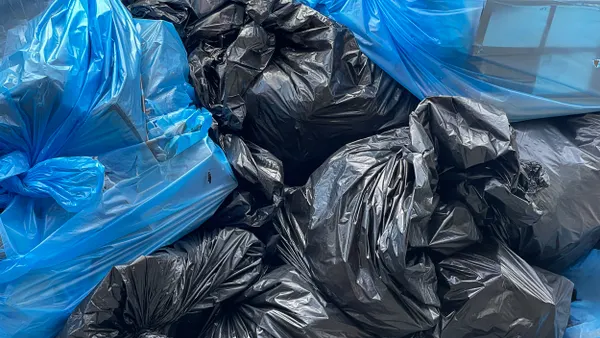Dive Brief:
- U.S. Senators Dianne Feinstein (D-CA) and Ron Wyden (D-OR), both members of the Senate Finance Committee, recently sent a letter to Chinese Ambassador Cui Tiankai asking the country to "develop a multi-year transition plan" for its new scrap import policies with "attainable contamination levels."
- The Jan. 17 letter, forwarded to Waste Dive by the Solid Waste Association of North America, said U.S. exporters have been working to reduce contamination levels since 2013 out of respect to China's environmental concerns. It noted that "American recyclers maintain some of the lowest contamination rates in the world, and are therefore capable of supporting China’s goal of sustainable environmentally-friendly manufacturing."
- This letter comes as the U.S. Trade Representative's (USTR) office continues to raise the issue at World Trade Organization (WTO) meetings, including the Technical Barriers to Trade Committee and the Import Licensing Committee. The U.S. Embassy has also met with China's Ministry of Environmental Protection in Beijing to discuss the matter.
Dive Insight:
China's July 2017 WTO filing to ban imports of 24 scrap commodities, and ensuing confirmation of a 0.5% contamination standard, has caused widespread disruption throughout the global recycling industry. A growing number of U.S. states have felt these effects and the topic has become a top priority for industry trade groups.
SWANA, the Institute of Scrap Recycling Industries and National Waste & Recycling Association have been filing multiple rounds of comments to the WTO asking more time and more clarity. The organizations have also maintained varying levels of contact with senate and federal offices in recent months.
While the USTR and Department of Commerce have also been involved in this process, the interest of two senators is a notable evolution. The topic has started to catch on at mainstream news outlets, but still hasn't been publicly discussed by high-ranking cabinet officials like in the U.K.
With the U.S. already engaged in higher profile trade enforcement actions, such as the recent solar panel tariff announcement, this may be by design. Some are concerned that too much public pressure could potentially lead to retaliation from China that would further affect the U.S. recycling industry.
That cautious and diplomatic tone is evident in the Jan. 17 letter, which concludes with the line, "We believe that it is in the best interest of both the United States and China to work together to implement a transition period that allows for America recyclers and Chinese manufacturers to continue this important commerce."
How quickly China can ramp up its own domestic recycling efforts, and whether that will be fast enough to support manufacturing needs, remains one of the key questions. Some still believe China may soften its position. Others believe the country may just start importing more virgin feedstock. In the meantime, China started off the year by highlighting its domestic recycling plans and boasting about a record crackdown on waste smuggling in 2017.











